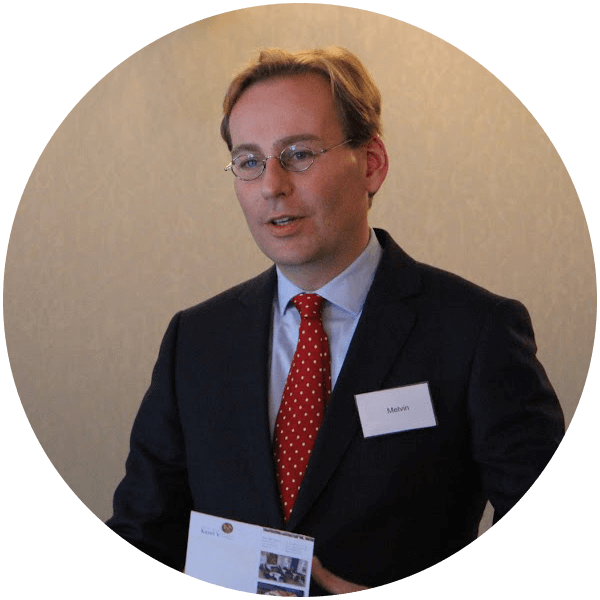Project Description
Enrich your knowledge with our introduction course
Understanding the world in which we live and being able to respond to developments requires knowledge of fundamentals. Insight into the origins of our contemporary society and the prevailing ideas is essential. Discover the sources within the Western tradition in this introduction course. What does our course programme entail?
In-depth course programme
The AILAS academic programme is a valuable supplement to bachelor programmes and university colleges at home and abroad. Our students are Bachelor and Master students, but also working professionals, as well as others with an academic degree seeking greater depth of learning. This results in mixed course groups with a unique dynamic, and an exceptional interaction and exchange of knowledge.
Survey course ‘Introduction to the Western tradition’
Greater comprehension of the society around us starts with understanding of the fundamental sources, the ‘great works’ within Western culture. In the midst of our constantly changing, complex society they constitute a map providing overview and a compass offering insight. In this foundational course we share knowledge about fundamental sources from the most important academic disciplines:
- History
- Literature
- Philosophy
- Law
- Economics
- Natural sciences
- Music and art
Our teachers, attached to Dutch universities, provide insight into the lasting importance of classic works for today’s society. Register for the next course.
Greater comprehension of the society around us starts with understanding of the fundamental sources, the ‘great works’ within Western culture. In the midst of our constantly changing, complex society they constitute a map providing overview and a compass offering insight. In this foundational course we share knowledge about fundamental sources from the most important academic disciplines:
- History
- Literature
- Philosophy
- Law
- Economics
- Natural sciences
- Music and art
The focus of the programme is on the connections between the works. For example, you will discover how the concept of virtue changed in meaning between Homer and Plato, and how Hobbes’ political thinking was influenced by the scientific revolution.
Our teachers, attached to Dutch universities, provide insight into the lasting importance of classic works for today’s society. Register for the next course.
‘’In this course I learned more than in many classes at university. That was due to the reading of fundamental sources … and inspired and thoroughly informed teachers.’’
Improved independent thought and autonomous judgment
All students and those academically educated benefit from skills that help them to think and act more independently in their studies, work, or their hobbies, and arrive at their own judgment. The introduction course contributes to this by:
- Knowledge of the ‘great works’
- Practice of independent reasoning and phrasing
- Insight into the links between the works and their historical context
The introduction course is hence a valuable addition to your CV.
TEACHER
The course consists of five modules:
Module 1
The idea of the West: an overview
Reading material: ‘Eccentric Culture, A Theory of Western Civilization’ by Remi Brague
Module 2 – Antiquity
Reading material: Homer, Aristotle
Module 3 -The Middle Ages
Reading Material: Bible, Augustine, Aquinas
Module 4 – Early Modernity
Reading Material: Descartes, Hobbes
Module 5 – Late Modernity
Reading Material: Kant, Goethe
Module 1
The idea of the West: an overview
Reading material: ‘Eccentric Culture, A Theory of Western Civilization’ by Remi Brague
Module 2 – Antiquity
Reading material: Homer, Aristotle
Module 3 – The Middle Ages
Reading Material: Bible, Augustine, Aquinas
Module 4 – Early Modernity
Reading Material: Descartes, Hobbes
Module 5 – Late modernity
Reading Material: Kant, Goethe
The meetings consist of the thorough and close reading of important parts of the assigned text, discussion of the structure of the argument and the logic of the text, and the development of an autonomous, independent judgment. Participants are encouraged to actively contribute to the discussion.
Optional: participants write a brief essay (800 words, excluding bibliography) containing their own argument for or against an aspect or view of an author read in the course. The choice of topic is free, but it should match the themes and literature of the course.
Participants registered as students at a university may ask the board of examiners of their institutions for credit for this course.
Practical information:
- Amsterdam
- 19.00 – 21.00
- 550,-incl. VAT
Students unable to pay the full course fee may apply for a scholarship of at most 30% made available by AILAS.
University lecturers and secondary school teachers preparing pupils for university unable to pay the full course fee may apply for a scholarship of at most 20% made available by AILAS.
- Coffee, tea, study material
Due to the maximum group size of 15 people there is ample opportunity for questions and interaction. The groups are combined in terms of age, study and work experiences. On request, specific compositions are possible at sufficient notification.
AILAS is currently investigating the possibility of a short summer course of several days on this subject. Information about this (data, etc.) we will publish as soon as possible on this page.
“The course makes you comprehend better why the world around us is structured as it is.’’
Registration Form
Keep informed for future start dates
Dare to think


